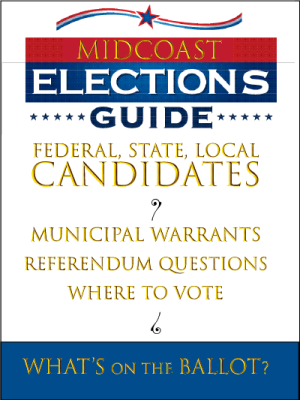THOMASTON — Last Saturday, employees at a food establishment in Thomaston requested a police response, reporting a man with a “threatening demeanor” who’d been sitting at a table for a long time. The employees feared that the man was recording them with his cellphone. They told 911 dispatch that he may also have a gun.
Instead of violent and threatening, however, the responding officer encountered a 25-year-old man with autism, who, according to his mother, wouldn’t know how to record from his phone, nor has he likely ever seen a gun in real life.
“If they had talked to him for two seconds, they would have known that he has autism,” said Caroline McKuen.
She is heartbroken. Her son, Kevin Weestra, is self-sufficient. He works at a fast food restaurant and is capable of doing his own shopping.
And on this particular Saturday, between shopping and attending an appointment, he whiled away the time with a cup of coffee at a donut shop. He found a seat, plugged in his earphones and retreated into a world of superhero videos on his phone.
According to McKuen, the food business said Kevin was there for about three hours. McKuen, who’d dropped him off earlier at Walmart, believes the time duration was closer to 1.5 to two hours prior to the 2:30 p.m., March 5, call to dispatch at Knox Regional Communications Center.
“He did stay too long,” said McKuen. “He doesn't really have a good sense of how long is too long to be in a coffee shop. But no one asked him to leave, or spoke to him at all.”
And yet, before he knew it, a police officer was standing in front of him, asking if he had a firearm and requesting to see some identification.
Officer Noah Stevens responded to the call, but instead of forcibly entering the establishment, he merely walked up to Kevin and asked him how he was doing, according to Thomaston Police Chief Tim Hoppe.
After talking with Kevin for a moment, Stevens established that the scene was safe. He then offered to sit with him until his ride came. Stevens turned to order a cup for himself. When he turned back, Kevin was outside, entering his mother’s vehicle.
The officer was friendly, Kevin told his mother as he got into McKuen’s car.
Officer?
Why would anyone call the police about Kevin? Instinctively, McKuen thought of the opposite situation – that people saw the disability and assumed that Kevin needed further help.
When McKuen followed up on the incident with the police department and the store manager, both the police report and the manager agreed that Kevin had simply been sitting and watching his videos. That softened the initial blow, but created an even bigger divide. Why, McKuen wondered, had the staff come up with bizarre explanations for their call to police?
“It seems pretty evident that they just saw that he looked weird and they started jumping to all kinds of conclusions,” she said.
McKuen said the Autism Society of Maine, which she called for support after the incident, likened the mood to a mob mentality that began when one employee pointed out to others the oddities of another. Their imaginations snowballed, said McKuen, leading to the belief that Kevin was recording them, which added weight to the concern since younger girls were around. Then the additional rumor of a possible firearm.
In fact, according to Hoppe, it was Stevens who told the staff of the potential autism link. Thomaston police officers receive training for their interactions with the mental illness, autism, and Alzheimer’s in the community.
“We are trained to see that not everyone is the same,” said Hoppe.
However, Hoppe said, the general public doesn’t always get the same education, and different people may view situations differently. For example, a caller might perceive that another person is hostile, whereas the responding officer might not see any hostility.
In addition, sometimes a problem stems from how the report is relayed from the employees to the caller to the dispatcher to the responding officer. Different people interpret different things.
“As the mother of an autistic man, this sort of thing is so disheartening,” said McKuen. “We are encouraged to get disabled people out in the community, and when we do, sometimes people call the police on them when they are just sitting there minding their own business and drinking coffee.”
Kevin, fortunately, did not notice the tension in the room as he continued to watch his videos.
In this particular case, the officer was nice, and offered to sit with him until his ride came. In return, this young man, who provides foster care for abandoned kittens and volunteers at his church, thanked the officer for his service. Yet, even Kevin became frustrated with his realization that perhaps people were wasting the police's time when they could be out catching bad guys, according to his mother.
He further felt bad that it was because of him that the police were called, and for no reason, according to his mother.
Though the Thomaston officer was kind and educated to the signs of autism, there have been stories from around the country of arrests and shootings when officers failed to notice those important indications, said McKuen.
“I really hope to get the word out and make people think a bit before they do things like that,” she said. “Many people are very kind to my son, but it is frightening that I just never know what will happen when he goes out for a normal shopping day,” she said.
Reach Sarah Thompson at news@penbaypilot.com































